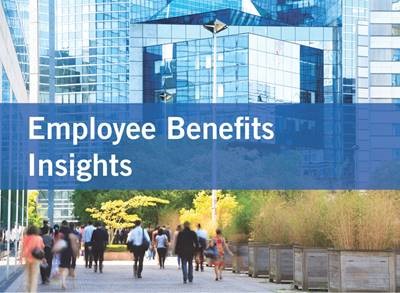
Takeaway Message
COBRA compliance requires extra attention right now. There has been a wave of litigation surrounding COBRA election notices. Regulatory agencies have extended certain COBRA deadlines due to the COVID-19 pandemic. And the Department of Labor recently released new COBRA model notices. Now, more than ever, employers need to take COBRA seriously and ensure that they are prepared to address these issues.
Legal Background – COBRA Summarized
In this time of increased layoffs and cutbacks due to COVID-19, employers should remember that any employees (or spouses/dependents of employees) who are covered under the employer’s health plan are entitled to pay to continue their coverage under the employer’s health plan after a termination of employment or a reduction in hours (or other “qualifying event,” such as divorce or a child aging out of the plan) that would result in a loss of eligibility under the employer’s health plan. This federal law applies to most employers with 20 or more employees in their controlled group (such as a parent-subsidiary relationship). Similar requirements apply to small employers under some state laws.
Legal Background – COBRA Election Notices
When terminating an employee who is covered under the employer’s health plan or reducing the employee’s hours to below the health plan’s eligibility threshold, the employer is required to notify its group health plan administrator within 30 days after the employee’s employment is terminated or employment hours are reduced. Within 14 days of that notification, the plan administrator is required to notify the employee and his or her covered family members of their right to elect COBRA coverage. (If the employer administers its own plan, then the employer has the entire 44-day period in which to do so). These deadlines also apply to other qualifying events and, in some situations, the employee (or spouse/dependent) is required to notify the plan to trigger the plan administrator’s requirement to provide an election notice (e.g., divorce).
Extension of COBRA Notice Deadlines
In light of the COVID-19 crisis, the Internal Revenue Service and the Department of Labor have granted temporary relief to employers who fail to meet the above-discussed deadlines during the “Outbreak Period,” which began on March 1, 2020 and will end 60 days after the announced end of the COVID-19 National Emergency (unless another date is specified by the IRS/DOL). Nevertheless, every effort should still be made to provide COBRA election notices by the original deadlines due to a fiduciary duty to act in the best interests of participants by letting them know their COBRA election rights. In addition, an employer should send COBRA notices per usual as it might increase its chances to collect COBRA premium payments from COBRA participants during the Outbreak Period, although COBRA premium payment deadlines have also been extended, as discussed below.
Changes to Model COBRA Notice
The COBRA election notice should be carefully worded and should closely follow the DOL’s new model notice. The employer or administrator should take care to complete the DOL’s model notice in the fields where it requires information that must be tailored to the employee, employer, or plan, such as when and how to elect COBRA coverage, where and how to pay COBRA premiums, and deadlines for premium payments. Additional information should not be added without careful consideration. Note that there have recently been numerous lawsuits on issues ranging from failure to provide all of the required information in the notice to providing multiple notices and/or excessive information in the notices. Any deviation from the model election notice should be carefully reviewed for whether such deviation could be confusing or could be construed to deter an individual from electing COBRA.
Extension of Deadlines for COBRA Participants
The one deviation that should be considered is to either add a clause to the election notice or to send a separate communication alerting COBRA election notice recipients that the deadlines stated therein are temporarily extended due to the COVID-19 crisis. The deadlines were extended by the IRS and DOL until after the end of the “Outbreak Period” (defined above). Ideally, this Outbreak Period extension would be described either within the COBRA election notice (or in a separate communication) to COBRA election notice recipients and would include short examples, such as the following examples:
“If a deadline stated in the COBRA election notice would have been March 15, 2020, then the new deadline is 15 days following the end of the Outbreak Period. If a person has a 60-day period of time that occurs during the Outbreak Period to take a specific action described in the COBRA election notice, then that 60-day period is extended until 60 days after the end of the Outbreak Period.”
Anticipated COBRA Premium Payment Delays
COBRA premium payment deadlines have been extended such that COBRA participants are not required to make COBRA premium payments during the Outbreak Period and will still be entitled to COBRA coverage during the Outbreak Period if they make up all premium payments by the new deadline that occurs after the Outbreak Period.
Employers will have to consider how to address the potential lag in premium payments. For fully-insured health plans, the insurance carrier might require full payment of the COBRA premium by the employer so that coverage does not lapse altogether, thereby forcing the employer to carry the costs for the interim period. For self-funded health plans, employers might continue to pay claims and seek recoupment from the COBRA participant if coverage is retroactively terminated, or they might consider pending claims until the premiums are received. Pending claims might become challenging if the Outbreak Period lasts for several months. For example, in-network providers might demand timely payment under their network agreements, or stop-loss carriers might deny claims paid after a certain time following the end of the plan year. Employers should consult with their carriers, plan administrators, and service providers to strategize best approaches in anticipation of likely late COBRA premiums.
For more information, please contact your Foley relationship partner or the authors listed below. Foley has created a multi-disciplinary and multi-jurisdictional team to respond to COVID 19, which has prepared a wealth of topical client resources and is prepared to help our clients meet the legal and business challenges that the coronavirus outbreak is creating for stakeholders across a range of industries. Click here for Foley’s Coronavirus Resource Center to stay apprised of relevant developments, insights and resources to support your business during this challenging time. To receive this content directly in your inbox, click here and submit the form.
 |
As part of Foley’s ongoing commitment to provide legal insight to our clients and colleagues, our Employee Benefits and Executive Compensation Group has a monthly newsletter we call “Employee Benefits Insights,” where we provide you with updates on the most recent and pressing matters concerning employee benefits and other related topics. Click here or click the button to the left to subscribe. |




